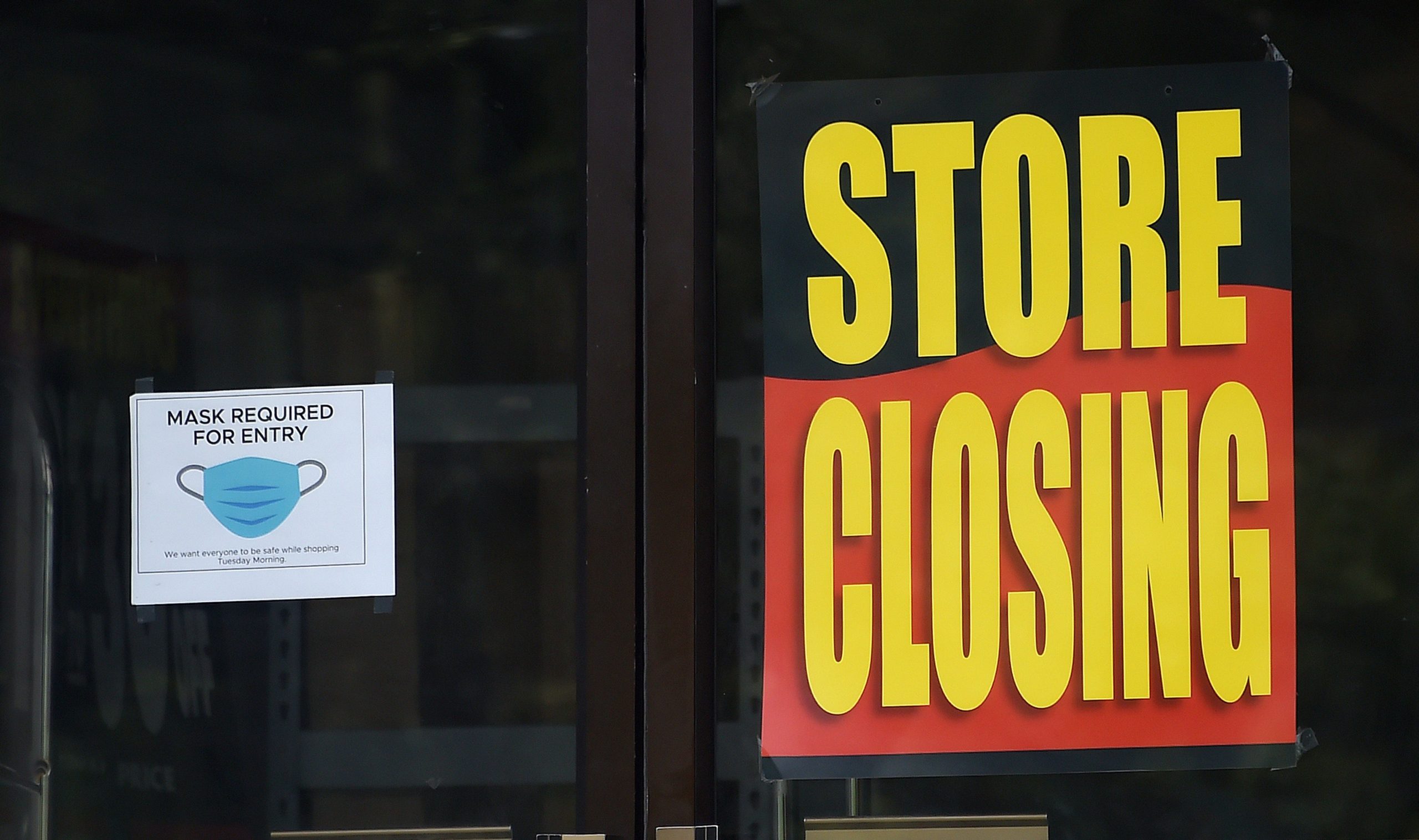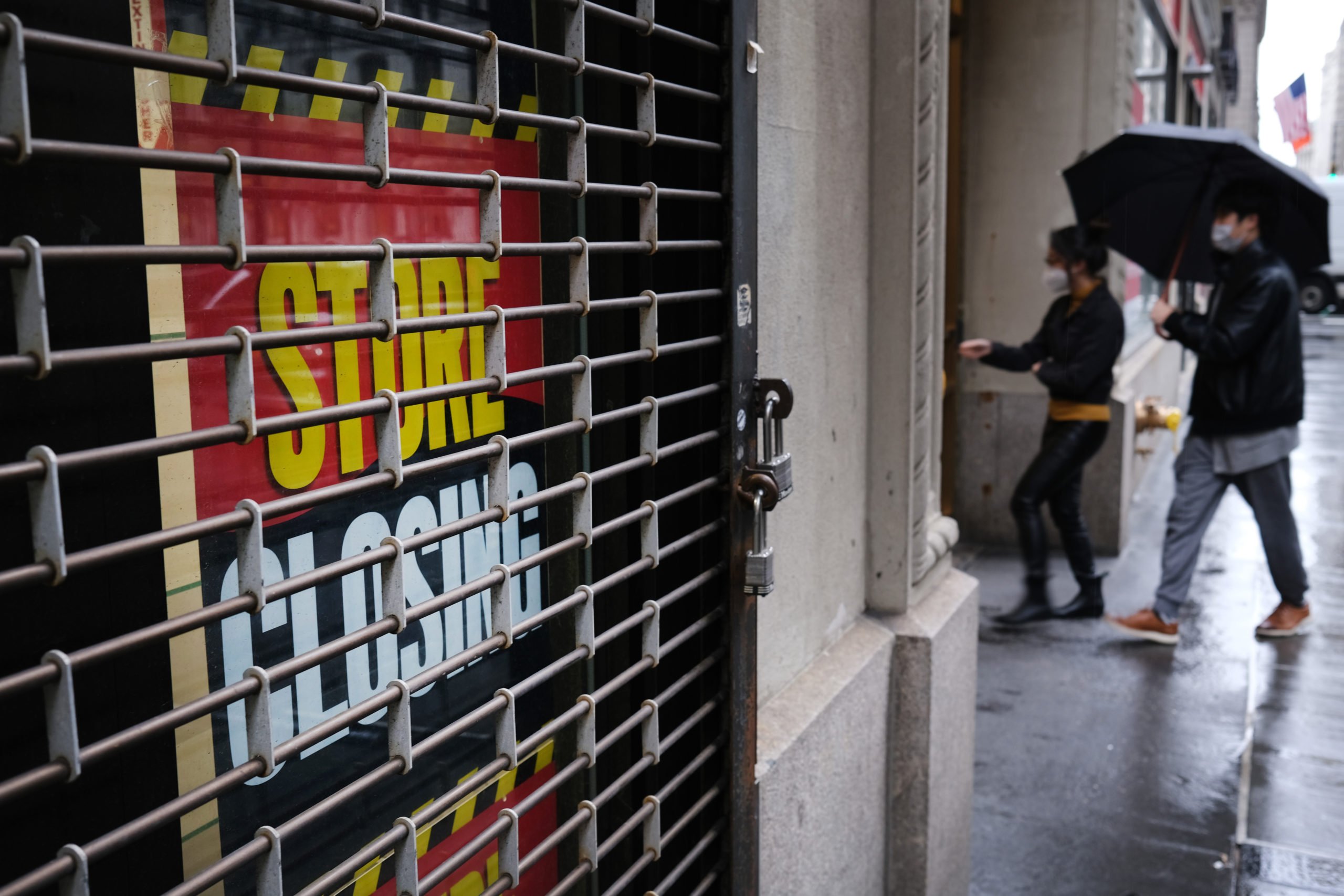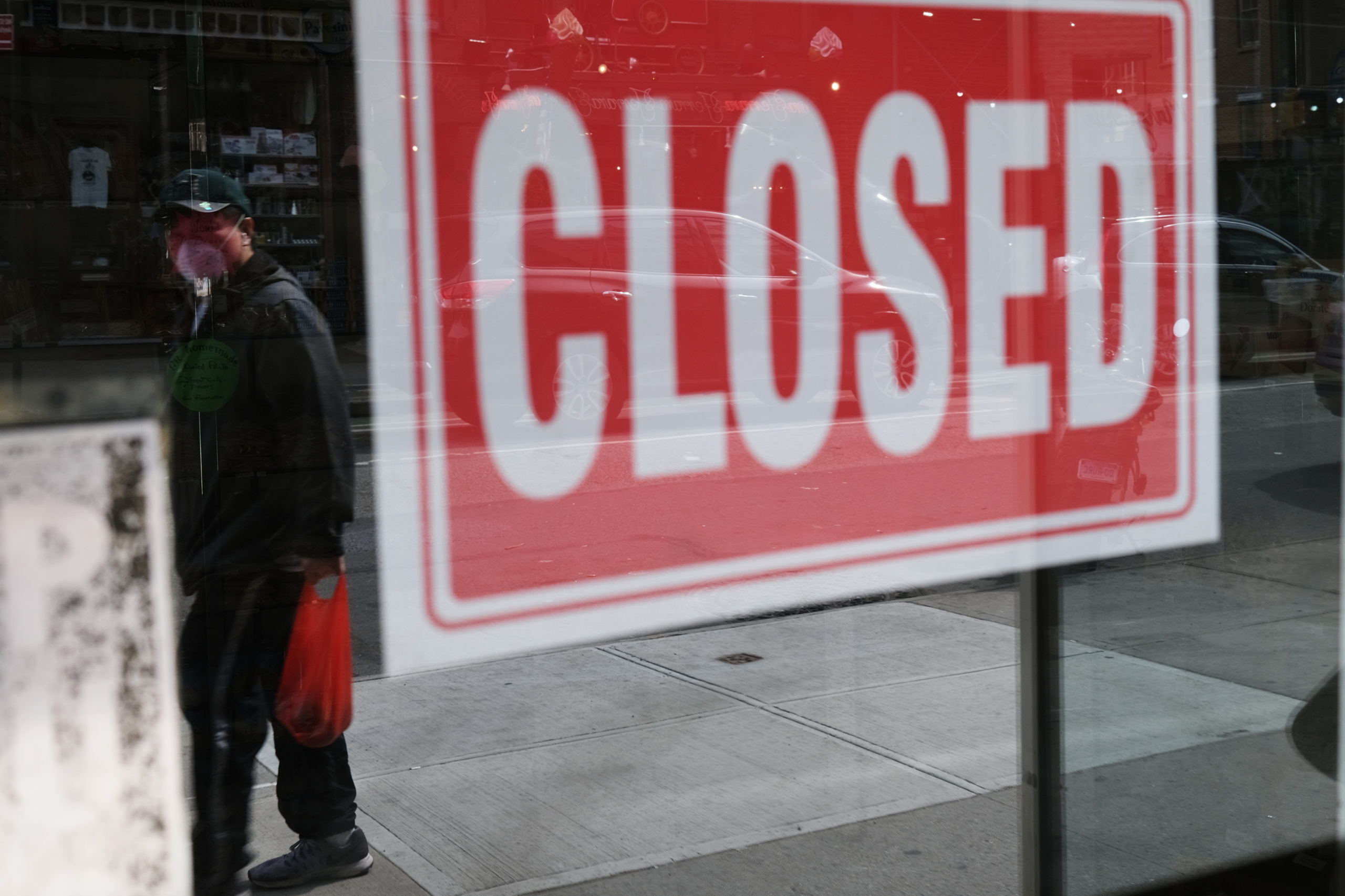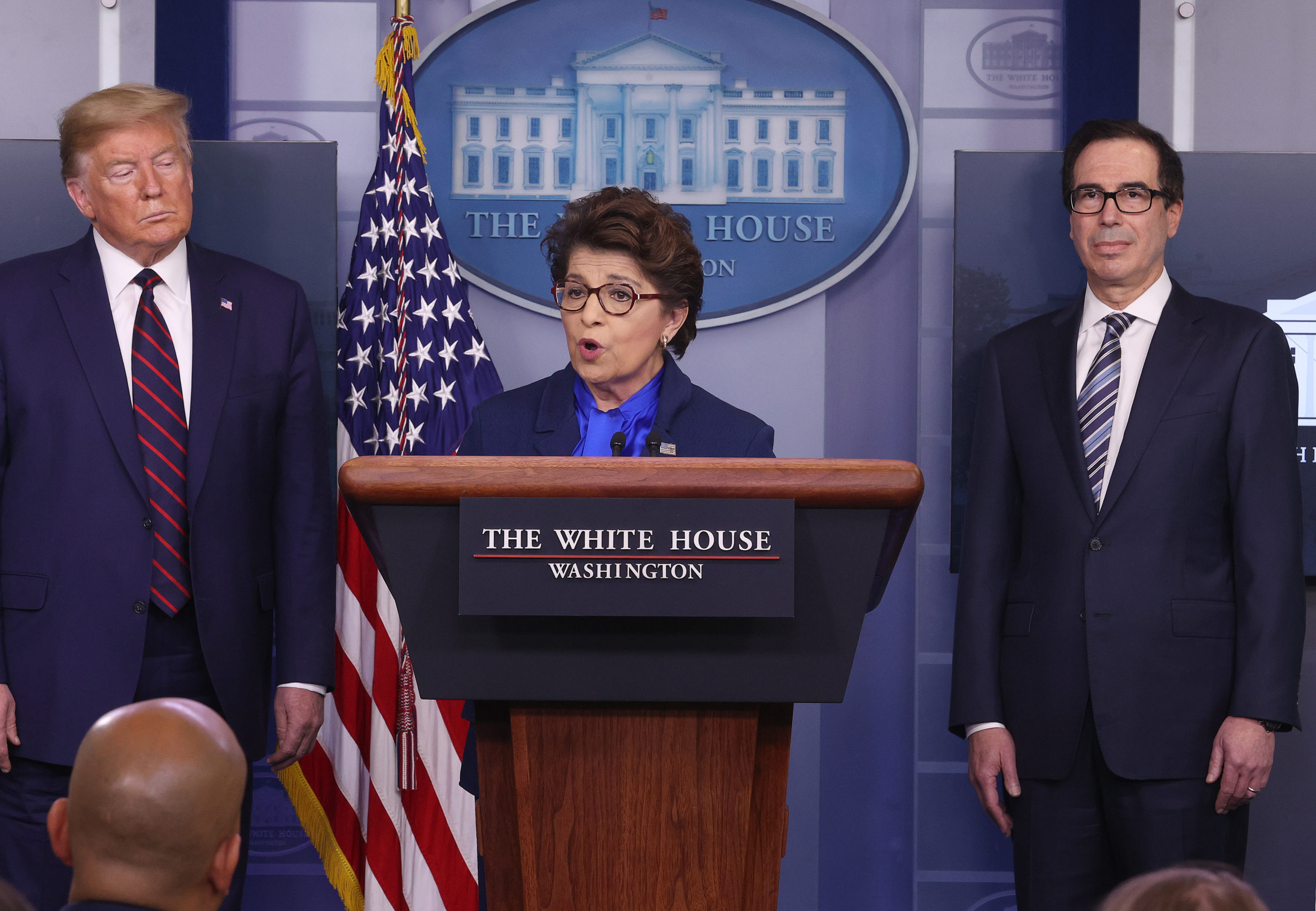A combination of higher unemployment and lower consumer spending due to the ongoing coronavirus pandemic has had a devastating impact on America’s small businesses.
Industries ranging from restaurants to light manufacturers have reported huge losses in revenue throughout the year and difficulty in retaining employees, The New York Times reported. Economists projected that 2% of small businesses would close forever because of the pandemic, according to an academic study published in The Washington Post.

A store displays a sign before closing down permanently in Arlington, Virginia (Oliver Douliery/AFP via Getty Images)
More than 30 million small businesses operate in the U.S. and employ more than 50 million people, according to the Small Business Administration (SBA). The agency defines a small business as having no more than 1,500 employees and less than $38.5 million in average annual revenue.
Small businesses are critical to the American economy given that they represent the vast majority of all businesses and account for nearly 44% of all economic activity, according to a 2019 SBA report.
Months of uncertainty during the pandemic has strained small business operations considerably due to a surge in new coronavirus cases, statewide lockdowns and restrictions on public gatherings. Many small businesses have effectively transitioned to new operating models but business closures — often permanent — are widespread.
Tracking the wave of closures has been difficult given that real-time economic data on small businesses are scarce, The Washington Post reported. But a number of economic studies published in the last two months have estimated the real-time impact of the coronavirus pandemic on small businesses.

A store stands closed near Wall Street as the coronavirus keeps financial markets and businesses mostly closed (Spencer Platt/Getty Images)
A Yelp economic impact report published in September found that 163,735 total small businesses had temporarily closed since the beginning of the pandemic in March, with 97,966 of those closures reported as permanent. (RELATED: Over 100,000 Small Businesses Have Closed Forever As Result Of Coronavirus Pandemic)
Permanent closures represent roughly 60% of all small business closures, with restaurants and retail stores facing the brunt of the pandemic’s economic impact, CNBC reported. Yelp vice president of data science Justin Norman noted that “business closures have continued to rise with a 34% increase in permanent closures” compared to July.
But industries that operate with relatively consistent consumer demand have fared better. “Despite the hard hit small businesses have certainly taken, we’ve seen that home, local, professional and automotive services have been able to withstand the effects of the pandemic better than other industries,” Norman said.
Large cities have been disproportionately impacted by small business closures and report needing further aid, according to the World Economic Forum. In local economies built around hospitality and tourism like Honolulu and New Orleans, small business closures are double the national average as vacations and conferences have been halted indefinitely. Cities with large technology industries like San Francisco and Austin have also seen similar rates of business closures.

A store stands closed in New York City (Spencer Platt/Getty Images)
As of Nov. 16, the number of small businesses open is 28.9% lower than in January according to Opportunity Insights, an economic research team based at Harvard University. The numbers are more promising compared to earlier this year, when the number of businesses open in April was 44% lower than before the pandemic.
Some parts of the economy are beginning to hum again as an October report from the National Federation of Independent Business (NFIB) found more than half of small business owners plan to increase employment. More businesses are also making capital outlays and increasing inventories, according to the report.
Total non-farm payroll employment rose by 661,000 in September as the large unemployment numbers between March and May were nearly cancelled out by strong employment numbers between May and September, according to data from the Bureau of Labor Statistics.
But NFIB vice president for federal government relations Kevin Kuhlman noted that the recovery trend is still not strong enough for many small businesses. “If economic trends continue at this rate, one in five business owners anticipates they won’t make it until the end of the year,” he said. (RELATED: 22% Of PPP Loan Recipients Will Still Have To Lay Off At Least 1 Employee)
SBA Administrator Jovita Carranza said in late October that small businesses would need a new round of government aid — including a renewal of the Paycheck Protection program (PPP) — in order to keep employees working and recalibrate business models. “They’ve told me that another round of PPP would be helpful, but with different dynamics,” Carranza told Bloomberg.

Small Business Administrator, Jovita Carranza speaks with President Donald Trump and Secretary of Treasury Steve Mnuchin (Win McNamee/Getty Images)
Congress and the White House have been unable to reach a deal on another stimulus package after the PPP program ended Aug. 8 with nearly $134 billion in funds left over, Bloomberg reported. Congress began a lame-duck session early this month with the prospects of new coronavirus relief legislation remaining uncertain, according to the Associated Press.
While President Donald Trump signaled that legislation would be negotiated after the election, it is unclear if his administration and Senate Republicans will be able to reach a deal with House Democrats on expanding aid to small businesses.












